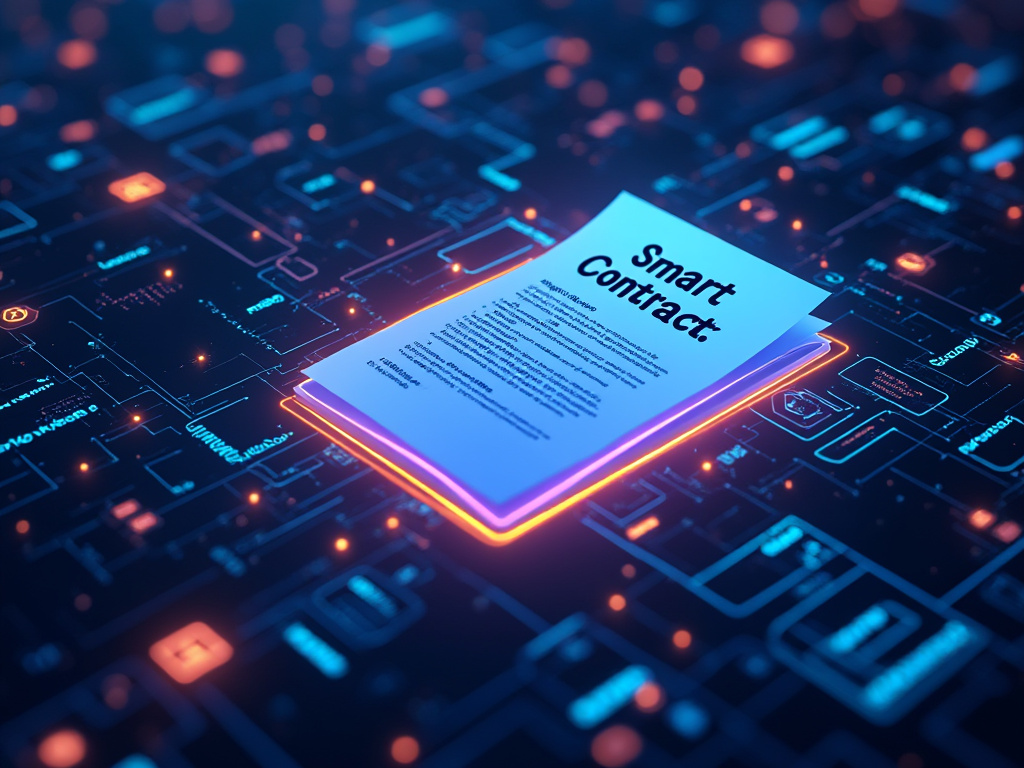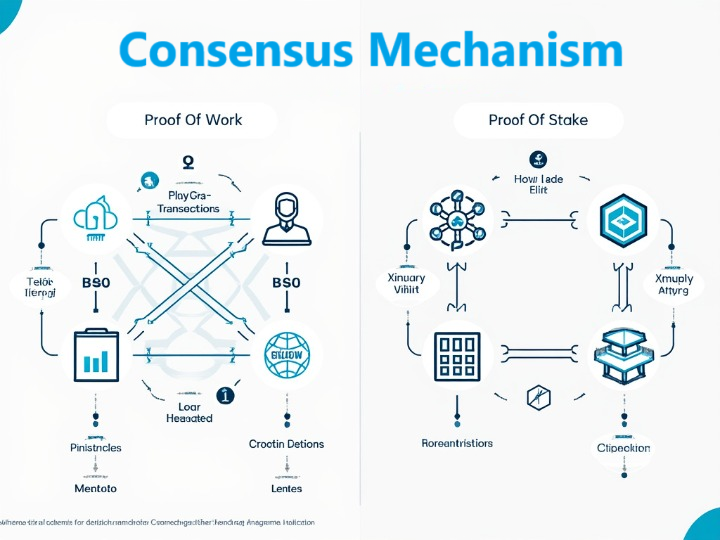In the rapidly evolving world of digital finance and technology, the term “Smart Contract” has become increasingly prevalent. Smart contracts are self-executing contracts with the terms of the agreement directly written into lines of code. They operate on blockchain networks, where the code and the agreements contained therein are distributed and decentralized. The use of smart contracts has revolutionized the way transactions are made, providing a secure, transparent, and efficient means of conducting business without the need for intermediaries.

What are Smart Contracts?
Smart contracts are essentially digital agreements that automatically execute and enforce the terms of a contract. This happens when certain conditions are met. Unlike traditional contracts, smart contracts eliminate the need for third parties. There is no need for lawyers or notaries to verify or enforce the agreement. This is because the smart contract itself is coded to recognize when the terms of the contract have been fulfilled. For example, in a real estate transaction, a smart contract could automatically transfer ownership of a property. This would happen once payment has been received, thereby reducing the need for intermediaries and lowering costs. This feature makes “smart contracts explained” an attractive topic for those interested in blockchain technology and digital finance.
How Do Smart Contracts Work?
Smart contracts operate on blockchain networks, such as Ethereum, which is one of the most popular blockchains with smart contracts capabilities. The blockchain provides a decentralized ledger that ensures all parties have access to the same information, thereby preventing any single party from manipulating the contract. When a smart contract is deployed on a blockchain, it is immutable, meaning that once it is created, it cannot be altered. This ensures that all parties are held to the terms of the contract and that the agreement cannot be tampered with.
A typical smart contract works through a simple “if/then” logic. For instance, if a user sends 5 Ether (ETH) to a specified address, then the smart contract will automatically release the agreed-upon digital asset, such as a token or an NFT (Non-Fungible Token), to the sender. This mechanism ensures trust and reduces the likelihood of fraud. This is particularly beneficial in industries like real estate, supply chain management, and even the art world, where NFT smart contracts are increasingly being used to verify authenticity and ownership.
The Benefits of Smart Contracts
One of the primary benefits of smart contracts is their ability to automate and streamline complex processes. This automation reduces the time and cost associated with manual verification and enforcement of agreements. Additionally, smart contracts offer a higher level of security than traditional contracts. Because they are stored on a blockchain, they are encrypted and cannot be hacked or altered without the consensus of the entire network.
Furthermore, smart contracts provide transparency and trust among all parties involved. Every action taken within the smart contract is recorded on the blockchain, creating an immutable and verifiable record. This transparency helps reduce the risk of disputes and ensures that all parties adhere to the agreed terms.
Another key advantage of smart contracts is their potential for use in various applications beyond financial transactions. For example, smart contracts can be used to manage supply chain operations, ensuring that goods are only paid for once they have been delivered and verified. They can also be used in voting systems to ensure that votes are counted accurately and securely, without the risk of tampering or fraud.
NFTBOOKS: A Real-World Application of Smart Contracts
NFTBOOKS provides a practical example of how smart contracts are transforming the publishing industry. By utilizing smart contracts, NFTBOOKS facilitates the automatic execution of agreements related to the rental of books, translator contracts, and the resale of digital books. For instance, when a reader rents a book on the NFTBOOKS platform, a smart contract automatically handles the transaction. It ensures that the book is returned or renewed by the due date. Rental fees are seamlessly transferred to the book owner.
Additionally, NFTBOOKS leverages smart contracts to manage royalty payments. Every time a book is resold or rented, the smart contract ensures that the author receives passive royalty income automatically. This happens without any manual intervention. This automated system not only streamlines the payment process but also builds trust and transparency among authors, readers, and translators. The use of smart contracts in this context is a fine example of how blockchain technology can create new revenue models. It also improves efficiency in the digital publishing industry.
Challenges and Limitations of Smart Contracts
While smart contracts offer numerous advantages, they are not without their challenges. One significant limitation is their reliance on the quality of the code. If a smart contract is poorly written, it can contain vulnerabilities that hackers can exploit. This was the case with the infamous DAO hack in 2016. A flaw in the smart contract code allowed an attacker to siphon off $50 million worth of Ether.
Another challenge is the issue of scalability. As more smart contracts are deployed on a blockchain, the network can become congested. This leads to slower transaction times and higher fees. This has been a particular problem for the Ethereum network. The popularity of decentralized applications (dApps) and NFT smart contracts has led to increased congestion and costs.
Additionally, there is the legal and regulatory landscape to consider. While smart contracts are designed to operate outside of traditional legal frameworks, there is still a need for legal clarity. This concerns their enforceability and compliance with existing laws. This is an area that is still evolving.
Future of Smart Contracts
Despite these challenges, the future of smart contracts looks promising. As blockchain technology continues to evolve, so too will the capabilities and applications of smart contracts. Newer blockchains with smart contracts capabilities, such as Cardano and Polkadot, are being developed to address some of the limitations of earlier networks, offering faster transaction times and lower fees.
Moreover, as more industries recognize the potential of smart contracts, we can expect to see a wider adoption of this technology in various sectors. From real estate and finance to healthcare and entertainment, smart contracts have the potential to revolutionize how we conduct business and interact with one another.
You might be interested in reading Blockchain as well.
To Sum Up on Smart Contract
Smart contracts are a groundbreaking technology that offers a secure, transparent, and efficient way to conduct digital transactions. By automating processes and eliminating the need for intermediaries, they provide numerous benefits, including cost savings, increased security, and greater trust among parties. While there are still challenges to overcome, such as scalability and regulatory issues, the future of smart contracts is bright, with new developments and applications on the horizon.







